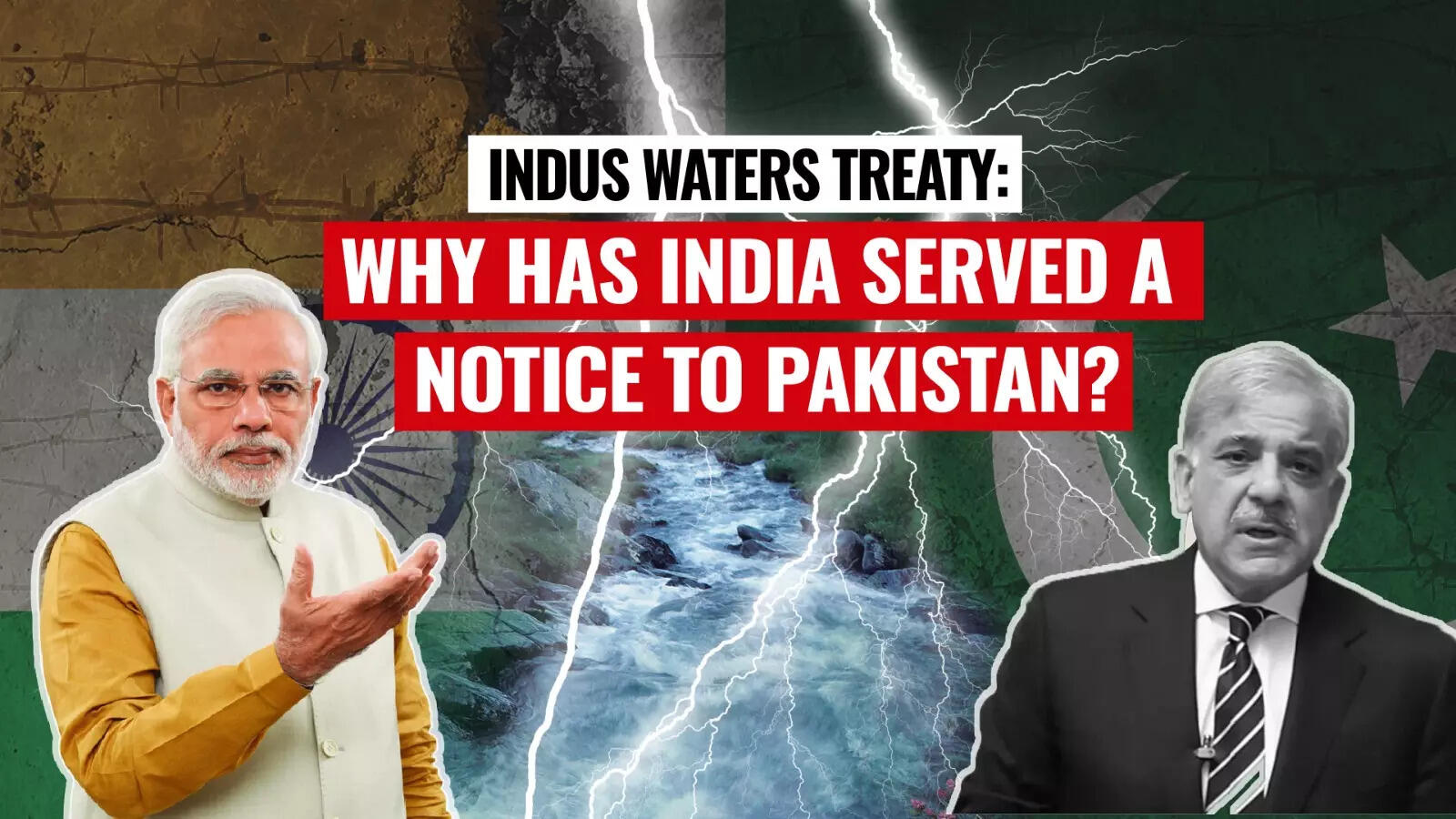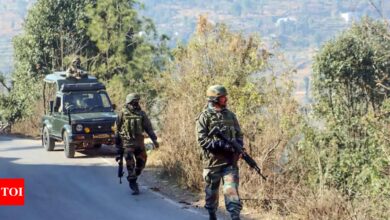The Indus Waters Treaty: An Overview of the Waters-Sharing Agreement between India and Pakistan | India News

[ad_1]
In recent years, the treaty has become a subject of dispute between India and Pakistan. In fact, India has issued a notice to Pakistan seeking changes to the IWT due to Pakistan’s “intransigence” towards following the treaty rules.
Pakistan, on the other hand, has raised objections to India’s construction of the Kishenganga and Ratle hydroelectric power projects, both located in Jammu and Kashmir.
What is the Indus Waters Treaty (IWT)?
The Indus Waters Treaty is a Waters-sharing agreement signed between India and Pakistan in 1960, under the supervision of the World Bank. The treaty aims to allocate the use of and resolve disputes over the Indus River and its tributaries, which flow through China, India, and Pakistan.
Indus Waters Treaty: Why has India issued a notice to Pakistan? #induswatertreaty
The pact regulates the use and distribution of the Indus River system, which consists of the main Indus River and its five tributaries – the Ravi, the Beas, the Sutlej, the Jhelum, and the Chenab.
There are three eastern rivers – the Ravi, the Beas and the Sutlej – while there are three western rivers – Chenab, Jhelum, and Indus main.
According to the treaty, the waters of eastern rivers go to India, whereas the waters of western rivers primarily go to Pakistan.
How did the Indus Waters Treaty come about?
After a dispute broke out between the two countries over irrigation Waters from existing facilities, the Indus Waters Treaty was signed in Karachi on September 19, 1960, by then Pakistani President – Field Marshal Mohammad Ayub Khan, former Indian PM Jawaharlal Nehru, and World Bank’s W.A.B. Illif.
The treaty took effect on April 1, 1961.
What does the IWT lay out?
The treaty has a preamble, 12 articles, and eight annexures that provide India with absolute control over the waters of the eastern rivers – the Ravi, Sutlej, and Beas – while Pakistan receives unrestricted use of the western rivers – the Indus, Jhelum, and Chenab.
India can create storage (via hydro-plants) on the western rivers according to the treaty. The IWT also establishes a Permanent Indus Commission (PIC) consisting of two Commissioners, one from India and one from Pakistan, to promote cooperation between the two nations and resolve any questions arising from the treaty’s interpretation or implementation.
Once a year, the PIC meets alternately in India and Pakistan and whenever either Commissioner asks to meet. As part of its work, PIC also inspects rivers and works to find out what’s going on with various developments.
Why has India served a notice to Pakistan, seeking changes to IWT?
India announced earlier this month, that it wants to modify the 62-year-old Indus Waters Treaty (IWT) with Pakistan, citing Pakistan’s non-cooperation in resolving disputes over the Kishenganga and Ratle hydroelectric power projects, both located in Jammu and Kashmir.
Pakistan first raised objections to India’s construction of the Kishenganga hydroelectric project on the Jhelum river back in 2006, and then objected to plans to construct the Ratle Hydroelectric Project on the Chenab river as well.
Both India and Pakistan do not agree on whether the technical details of the projects conformed with the treaty.
While Pakistan is in its full right under the treaty to raise these objections, the problem is that Pakistan betrayed the treaty protocol and instead went to an arbitration court at The Hague. This directly goes against the treaty, which says that the World Bank will appoint a ‘neutral expert’ to inspect and resolve the argument.
Why is the IWT notice beneficial for India?
New inter-governmental negotiations on the IWT which are going to follow because of India’s notice can totally work in India’s favour.
Official negotiation would allow India to modify the treaty to put a stop to Pakistan’s recent and past contradictory and inconsistent transgressions, going against treaty mandates.
Why is the IWT so important?
Historically, rivers have been used as weapons of war as they provide significant strategic advantages to countries and armies.
Controlling rivers allows nations and military forces to disrupt enemy access to water and food, restrict enemy movement, and win battles- the Indus runs through India, Pakistan AND China.
The IWT, therefore, is an especially important pact as it is often seen globally as a rare instance of India-Pakistan consensus that keeps China in check. This is especially after India has for the large part, cut trade, cultural exchange, and most bilateral talks with Pakistan.
According to the World Bank, the Treaty has been hailed as one of the most successful transboundary water management agreements on the planet.
With this being said, it is crucial to strengthen the IWT to make sure that water is used and distributed sustainably, and transgressions do not happen.
India’s current government is playing a key role on multiple aspects of the IWT. In 2021, for example, a Parliamentary Standing Committee in India stated that the IWT should also address the impact of climate change on water availability in the river basin and other challenges which are not covered under the agreement.
The IWT treaty is vital to keep Pakistan in check since the future of the Indus River system and billions of people, including you and I, rely on it.
#Indus #Waters #Treaty #Overview #WatersSharing #Agreement #India #Pakistan #India #News






